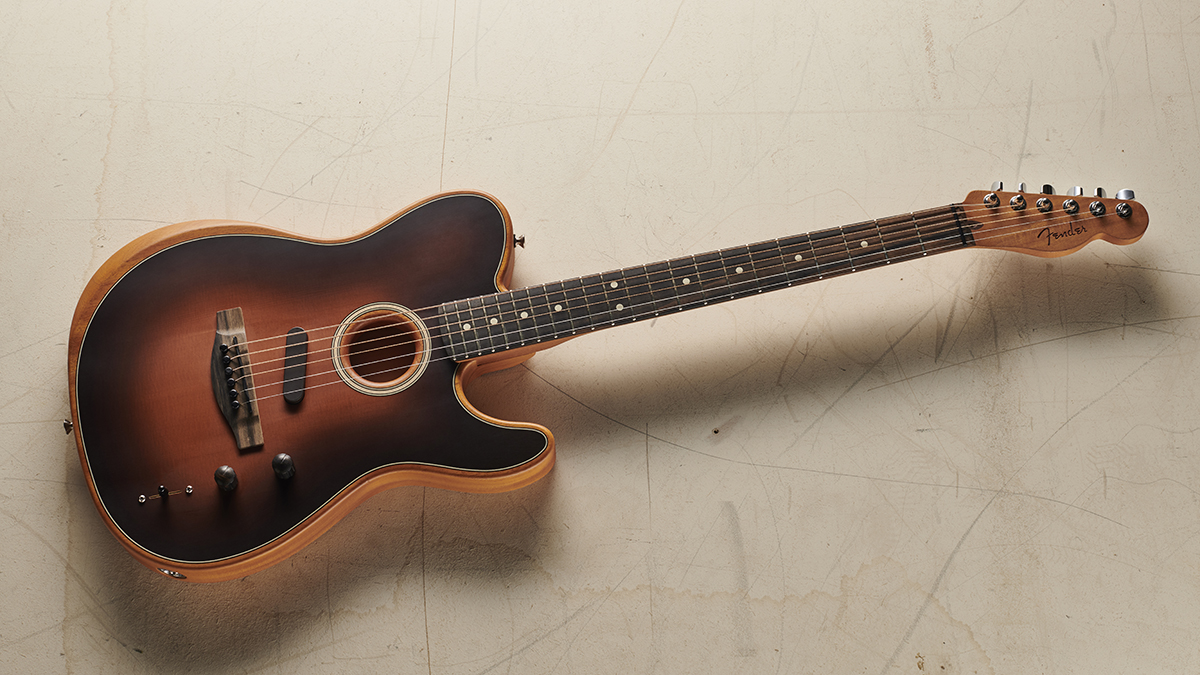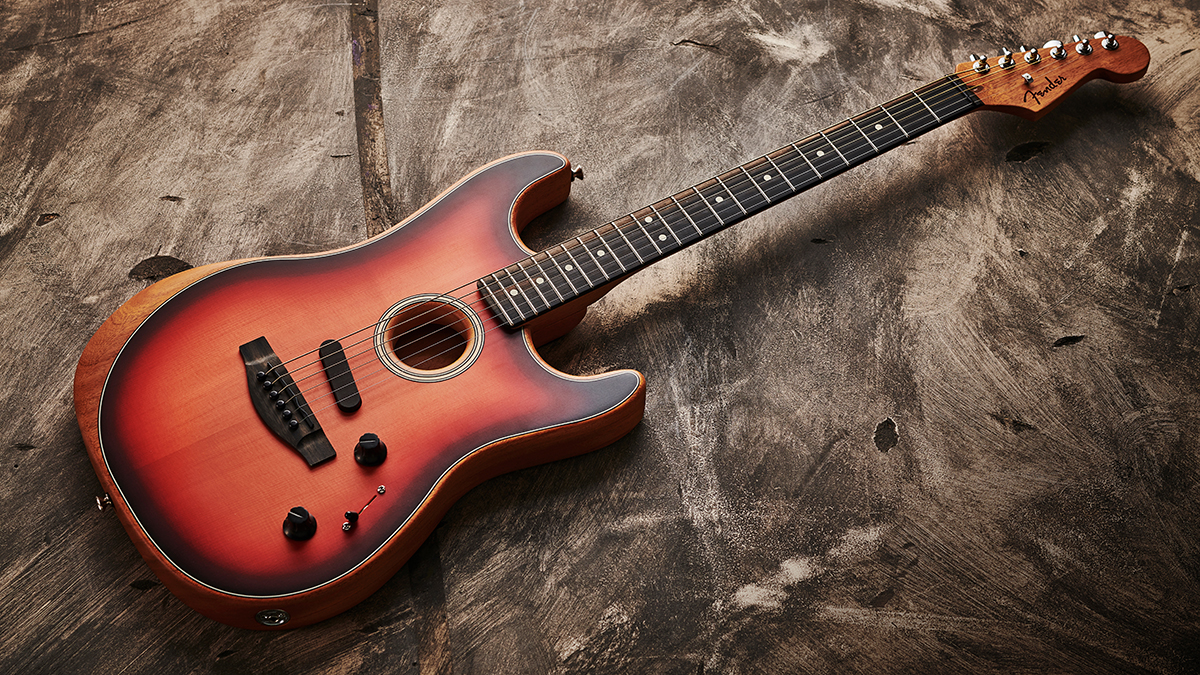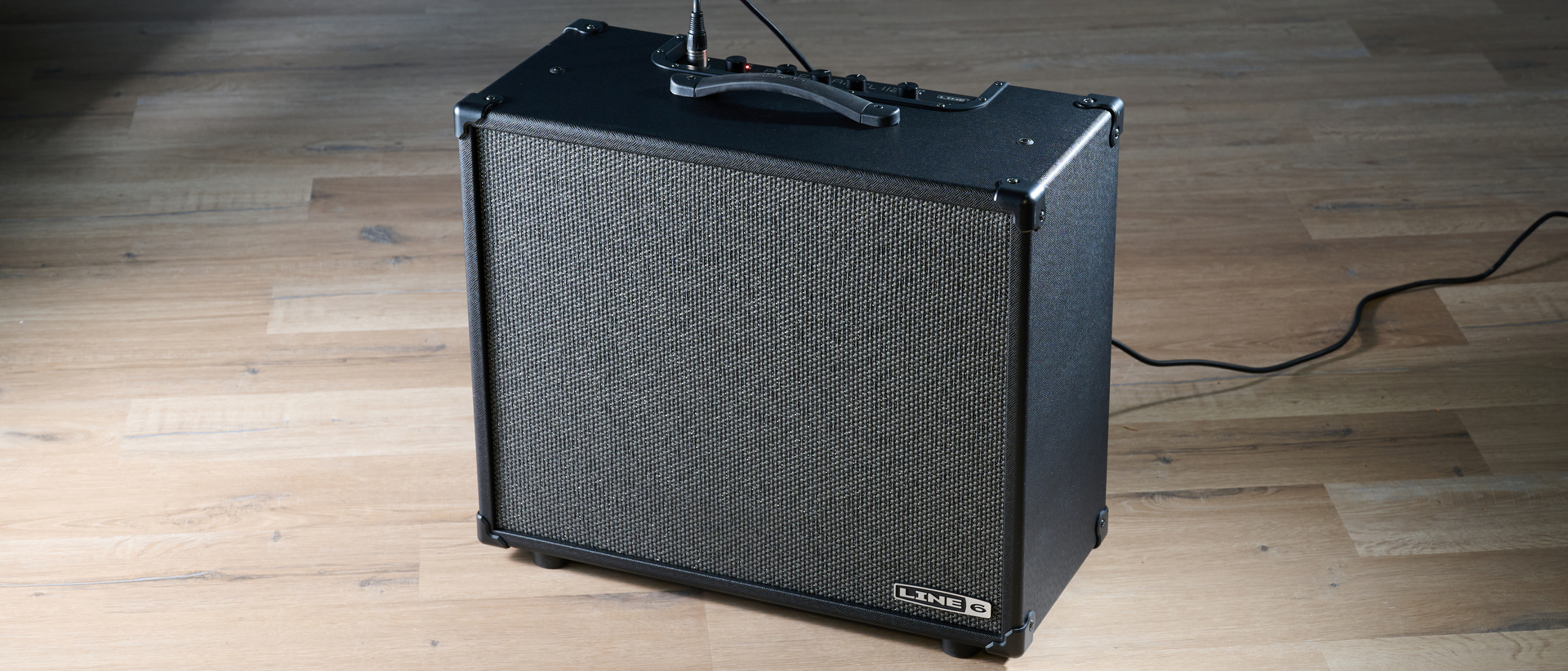Fender CEO Andy Mooney teases the possibility of Acoustasonic models inspired by classic acoustic body shapes

Since Fender debuted its American Acoustasonic Telecaster back in 2019, few, if any, subsequent guitars have been able to match its scale of innovation. Part electric, part acoustic, and with a pioneering electronics set and wholly unique approach to tone, the flagship Acoustasonic marked a genuine step forward in guitar design.
The Acoustasonic range continues to grow to this day. After following up the Tele with American Acoustasonic Stratocaster and Jazzmaster models, the Big F then made the ground-breaking format more affordable with the Player Acoustasonic Telecaster and Jazzmaster.
Simply put, the Acoustasonic has become one of Fender’s most popular and biggest-selling instruments of recent times – so much so, in fact, that the company has now vowed to continue its quest in pushing the boundaries of guitar design by taking the Acoustasonic to new heights.
In an upcoming interview with Guitar World, Fender CEO Andy Mooney spoke of the company's commitment to the Acoustasonic catalog, hinting at a desire to “explore both ends of the continuum” and make it even more affordable than the Player iteration in the future.
But, perhaps even more notably, Mooney also revealed Fender has already been exploring the possibility of taking new body shapes to the Acoustasonic range – body shapes that might include classic acoustic guitar silhouettes.
When asked if Fender had plans to expand the Acoustasonic family, Mooney told Guitar World, “Absolutely, and in more than one way, without completely spilling the beans.”
Elaborating on the cryptic tease, the Fender CEO went on to reflect on the origins of the Acoustasonic catalog, and revealed how the inception of Fender’s hybrid guitar was in part born out of an appreciation for popular Taylor and Martin guitars that were seeing stage action.
All the latest guitar news, interviews, lessons, reviews, deals and more, direct to your inbox!
“I think we're going to explore both ends of the continuum,” Mooney noted. “We're also going to look at different body shapes.
“When we first we even talked about doing Acoustasonic,” he continued, “my viewpoint was, what an artist would use on stage today – which would largely be Taylor or Martin – was a great acoustic guitar, louder. One voice, louder.
“If you're a very accomplished touring artist with a road crew, you can afford to have six or seven guitars every night on stage. But if you're not, having some flexibility in the electronics was really a benefit – as well as being lightweight, easily playable – and so that was part of the brief.

“That has really struck a chord with people. They really like the tonal flexibility, and the fact that you can use it with effects pedals and get feedback.
“But the body shapes, as an acoustic guitar, you either love it or you don't. So I think giving people options with a more traditional shape on an Acoustasonic platform is something that we're exploring.”
A move towards more traditional acoustic shapes makes sense, given the guitar itself is effectively an electric/acoustic hybrid loaded with a range of versatile electronics. Likewise, the Acoustasonics themselves provide genuine acoustic tones, so having an aesthetic more in keeping with this tonal capacity is a no-brainer.
Having said that, a dreadnought-shaped or parlor-sized Acoustasonic might still be a ways off, with Mooney asserting that any conversations surrounding these eye-opening instruments are in their very early stages.
Furthermore, this open-ended tease also leaves the door open for more electric body shapes to be introduced. We don't imagine we're alone in thinking a Mustang or Meteora Acoustasonic would make for a tantalizing addition to the range.
As for the other end of the “spectrum," Mooney went on to say how a more price-accessible Acoustasonic could emerge in the future – though not under the Squier umbrella – as Fender looks to make its innovative six-string a genuine instrumental option for both pros and beginners alike.
“We want to do what we would naturally do, and have an opening price-point version, with even simpler electronics,” Mooney commented. “Some of the things that I thought might be detrimental to the guitar are actually turning out to be positives.
“The low volume output when played entirely in acoustic mode is turning out to be a plus, because people who are not comfortable [playing] like the fact it’s not as loud, and people who are pretty professional keep their significant others happy when playing it at home.
“If we can make it more price-accessible, we think people who have an existing repertoire of guitars will add it into the repertoire as something different: ‘I want to try it, but I don’t want to spend $2,000 to do it. But if I can get it for under $1,000, then I’m gonna give them a shot.’
“Also for younger players coming in, who can start on an entry level Acoustasonic and move up. We’re very committed to the Acoustasonic platform.”

Matt is the GuitarWorld.com News Editor, and has been writing and editing for the site for five years. He has a Masters in the guitar, a degree in history, and has spent the last 19 years playing everything from blues and jazz to indie and pop. During his GW career, he’s interviewed Peter Frampton, Zakk Wylde, Tosin Abasi, Matteo Mancuso and more, and has profiled the CEOs of Guitar Center and Fender.
When he’s not combining his passion for writing and music during his day job, Matt performs with indie rock duo Esme Emerson, and has previously opened for the likes of Ed Sheeran, Keane, Japanese House and Good Neighbours.
